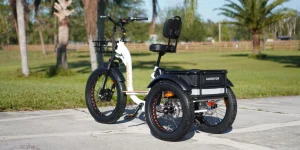Electric bikes, often known as e-bikes, have surged in popularity due to their unique combination of utility, efficiency, and fun. They offer an eco-friendly alternative to traditional transportation methods.
Understanding Electric Bikes
Definition and Basic Mechanics
An electric bike is a bicycle equipped with an electric motor that provides assistance while pedaling, making it easier to ride, especially up hills or over long distances.
Benefits of Electric Bikes
Efficiency and Power
Electric bikes come with varying motor powers, typically ranging from 250 watts to 750 watts. This power assistance allows riders to cover longer distances with less effort, making e-bikes highly efficient for commuting and leisure rides.
Cost and Economic Considerations
While the initial cost of an electric bike can be higher than traditional bicycles, ranging from a few hundred to several thousand dollars, they offer significant savings in the long run due to low maintenance costs and absence of fuel expenses.
Health and Fitness Benefits
E-bikes encourage more people to cycle, offering a moderate level of exercise. They are particularly beneficial for those who find regular bikes physically demanding.
Electric Trikes: A Special Mention
An Electric trike is a three-wheeled variant of the electric bike, offering stability and comfort, especially suitable for senior citizens or those with balance issues.
Specifications and Features
Electric trikes typically come with a robust build, often featuring a sturdy frame, a comfortable seat, and a large cargo space. Their motor specifications and battery life vary, catering to different needs.
Comparing Electric Bikes with Traditional Bikes
Speed and Performance
Electric bikes generally offer higher speeds compared to traditional bikes. They can reach speeds of 20 to 28 mph, depending on the motor and design.
Material and Quality
Manufacturers use high-quality materials for electric bikes to handle the additional weight and strain of the motor and battery. This includes reinforced frames and specialized tires.
Lifespan and Maintenance
The lifespan of an electric bike depends on its battery, motor, and overall quality. Batteries typically last for 500 to 1000 charge cycles, translating to several years of use.

Conclusion: The Value of Electric Bikes
Electric bikes represent a blend of modern technology and traditional cycling, offering an environmentally friendly, cost-effective, and enjoyable mode of transportation.